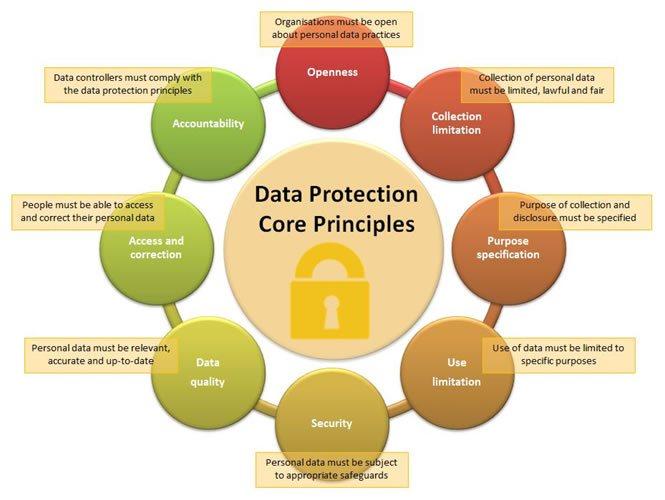The United Kingdom has taken a significant step forward in reshaping its data protection landscape with the introduction of the Data (Use and Access) Act 2025. This landmark legislation promises to redefine how personal data is accessed, shared, and utilized across both public and private sectors, aiming to balance innovation with privacy rights. As businesses and individuals navigate this evolving framework, the Act signals a new chapter in the UK’s commitment to safeguarding data while fostering responsible use in an increasingly digital world. This article delves into the key provisions of the Act and explores its anticipated impact on data governance nationwide.
Understanding the Key Provisions and Implications of the Data Use and Access Act 2025
The new legislation introduces comprehensive guidelines aimed at regulating how personal and non-personal data is accessed and utilized by both public and private sectors. Central to its framework is the introduction of a tiered access model, which categorizes data users based on their compliance levels and intended purposes. This model ensures that sensitive data remains safeguarded while promoting wider, ethical use of non-sensitive information to encourage innovation and research. Of particular note is the Act’s emphasis on transparency, requiring organizations to clearly disclose how data is being processed and shared, reinforcing public trust in data governance.
Key provisions also mandate the establishment of dedicated oversight bodies to monitor data transactions and enforce compliance. These bodies have been granted enhanced investigative powers, including the ability to impose substantial fines for violations. The Act further outlines strict conditions for cross-border data transfers, aligning closely with international data protection standards. Below is an overview of the major provisions and their potential implications for data stakeholders:
| Provision | Purpose | Implications |
|---|---|---|
| Tiered Access Model | Classify data users | Encourages responsible data sharing |
| Transparency Requirements | Disclose data use | Builds public trust and accountability |
| Oversight Bodies | Enforce compliance | Stronger regulatory enforcement |
| Cross-Border Rules | Regulate international data flows | Aligns UK with global standards |
How the New Legislation Shapes Data Sharing Between Public and Private Sectors
The recently enacted legislation introduces a pivotal shift in how data is exchanged between government entities and private organizations. By establishing clearer boundaries and standardized protocols, the Act prioritizes transparency, accountability, and security, aiming to foster a more collaborative data ecosystem that benefits public service delivery without compromising individual privacy rights. Among the key enhancements is the mandatory implementation of data-sharing agreements that explicitly define the scope, purpose, and duration of data access, effectively reducing ambiguity and potential misuse.
- Streamlined approval processes with designated data stewards in both sectors
- Enhanced auditing requirements to monitor data flows and compliance
- Stricter penalties for unauthorized access or breaches
- Incentives for private companies adopting best-practice data management frameworks
| Aspect | Pre-Act Framework | Post-Act Framework |
|---|---|---|
| Data Access Authorization | Ad hoc approvals | Standardized agreements |
| Accountability Measures | Limited oversight | Regular audits mandatory |
| Penalties for Breach | Minimal sanctions | Substantial fines and criminal charges |
Furthermore, the Act emphasizes the strategic use of data partnerships to drive innovation in fields such as healthcare, urban planning, and environmental management. Public sector bodies are now equipped with legal tools to engage private sector expertise securely, while businesses gain greater confidence that their proprietary and customer data is safeguarded under the law. This symbiotic approach not only reinforces trust across stakeholders but also accelerates the realization of data-driven solutions aimed at enhancing national services and economic growth.
Expert Recommendations for Compliance and Maximizing Opportunities Under the Updated Framework
To ensure compliance and unlock the full potential of the updated legislation, organizations should prioritize a proactive approach in revising their data governance frameworks. Experts underline the importance of conducting comprehensive data inventories, identifying all points of data use and access, and aligning internal policies with the Act’s new requirements. This systematic audit reduces risks of inadvertent non-compliance and facilitates transparency measures demanded under the updated law. Additionally, fostering cross-department collaboration between legal, IT, and compliance teams is critical to maintain a unified response to data access requests and regulatory oversight.
Key best practices include:
- Implementing dynamic consent models to enhance user control over personal data
- Adopting advanced encryption and anonymization technologies for sensitive datasets
- Developing robust incident response plans tailored to the Act’s breach notification timelines
- Engaging regularly with regulators and industry bodies to stay informed on evolving standards
| Compliance Focus | Recommended Action | Benefit |
|---|---|---|
| Data Access Management | Implement granular access controls | Limits exposure, enhances accountability |
| User Transparency | Upgrade communication channels for data rights | Builds trust and reduces complaints |
| Audit and Monitoring | Leverage AI-driven analytics | Enables early detection of policy deviations |
Key Takeaways
As the Data (Use and Access) Act 2025 comes into force, it marks a significant evolution in the UK’s approach to data protection and governance. By balancing the need for innovation with robust safeguards, the Act sets a new standard for transparency, accountability, and responsible data use. Stakeholders across industries will need to adapt to the updated regulatory landscape to ensure compliance and foster public trust. Moving forward, the Act will undoubtedly shape the future of data management in the UK, signaling a new chapter in the ongoing dialogue surrounding privacy and digital rights.




